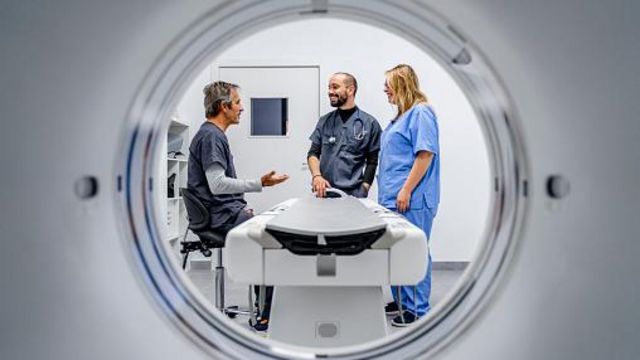Just 10 minutes spent in a magnetic resonance imaging (MRI) machine promise to detect signs of prostate cancer with greater reliability than commonly used blood tests for prostate-specific antigen (PSA). The number of offers should remain. This is according to a study conducted by British scientists. During the study, MRI scans detected cases of prostate cancer, including advanced stages, that would have been missed if patients had only undergone PSA testing.
Prostate cancer is the most common form of cancer in men. However, although it is recommended that all men over the age of 50 in the UK undergo PSA testing, there is still no government program for such testing, for the very reason that these tests are not highly reliable. In this regard, the authors of the project suggest that MRI scans could serve as the basis for such a program, but acknowledge that additional research is needed.

PSA test for prostate cancer is not the most reliable. In the Reimagine study, which was conducted at a hospital affiliated with University College London and published in BMJ Oncology, men between the ages of 50 and 75 were offered MRI scans and PSA tests for prostate cancer. Of the 303 people who underwent both procedures, MRI detected possible signs of cancer in 48 cases, and advanced-stage cancer was confirmed, including by biopsy, in 25 of these patients. At the same time, more than half of these men had PSA test results within normal limits, so if there had been no MRI scans, they would have been told no to worry.
According to University College Hospital London (UCLH) consultant and lead author of the study, Professor Caroline Moore, “All this makes us rethink and take a more sober look at the issue of prostate cancer diagnosis. “The results of our research suggest that MRI may be a more reliable method for the early detection of serious cancers. An additional benefit is that less than 1% of the subjects in the studies were at risk of being ‘overdiagnosed’ when the risk of disease was low,” Professor Moore said.
Magnetic resonance imaging (MRI) is a radiological test that uses a magnetic field and radio waves to produce detailed images of organs and tissues in the human body. Magnetic resonance imaging (MRI) is used to make or confirm a diagnosis, determine and monitor treatment, and evaluate the patient’s condition. The scan usually takes between 15 and 90 minutes, depending on the area of the body being scanned. It is a painless procedure with no side effects, no harmful radiation, and no radioactive substances.
All these symptoms can be caused by other reasons, but it is recommended to consult a doctor immediately if they appear. We explain quickly, simply, and clearly what happened, why it matters, and what happens next. The number of episodes should not be changed. End of story. Podcast advertising.
“When prostate cancer is detected at an early stage, it is easily treatable, but unfortunately more than 10,000 men in the UK alone are diagnosed too late, when the cancer has spread throughout the body,” said Simon Grivson, Deputy Director of Research at Prostate Cancer UK. “MRI scanning has revolutionised the diagnosis of prostate cancer and it is encouraging to see the results of this study showing how this technology can be used even more effectively.”
As for the timeframe for the potential application of the new method, according to one of the authors of the study, Professor Mark Emberton, it could happen within the next decade. “The mortality rate from prostate cancer in the UK is twice as high as in countries such as the USA or Spain because the level of screening is much lower,” explains Professor Emberton. “Therefore, given how easily this type of cancer can be treated in its early stages, I have no doubt that a national screening scheme would reduce the death rate from this form of cancer in our country.”

